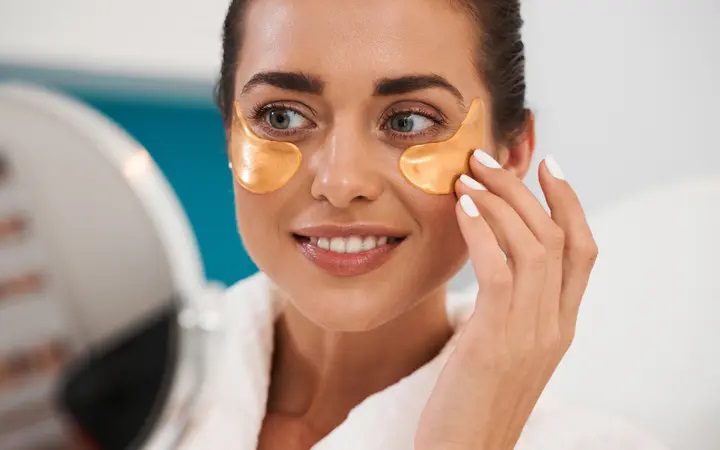The sensitive skin surrounding our eyes is frequently the first to exhibit indications of weariness and aging. Dark circles, wrinkles, and puffiness can make us appear older and more exhausted than we actually are. Fortunately, without using harsh chemicals or costly procedures, there are plenty of natural components that can assist in improving the appearance of our eyes.
These eight all-natural substances are fantastic for reducing wrinkles and puffiness around the eyes:
These natural components can be found in your refrigerator or cabinet at home.
-
Pour coffee over ice cubes
According to research, coffee has been proven to do more than boost your productivity when a deadline approaches. When applied topically, it promotes circulation around the eyes and possesses antioxidant qualities that may help prevent wrinkles and even shield the skin from additional damage caused by free radicals.
You can brighten tired skin, reduce edema, constrict blood vessels, and quickly cool your lids by freezing coffee into ice cubes.
-
Make use of green tea bags
Other antioxidant-rich drinks work well as under-eye treatments besides coffee. When applied to swollen lids, green tea, another everyday kitchen staple high in caffeine, may help reduce inflammation Trusted Source.
-
Consume vitamin E supplements
This vital vitamin, which is present in foods like sweet potatoes and nuts, is not only necessary for maintaining eye health when ingested but, when applied topically, provides adequate protection for the area behind the eyes.
According to research, topical administration of the antioxidant (available as an oil or as a capsule) can reduce inflammation and guard against photoaging.
-
Add a little vitamin K
Scientists have come across one of the most highly praised natural dark circle fighters: this fat-soluble vitamin. When combined with retinol (vitamin A), it has been demonstrated to effectively combat hyperpigmentation.
While now commonly found in over-the-counter beauty products, this component originates from crops like Brussels sprouts and broccoli in nature.
Apart from increasing the amount of those super greens in your diet, you might want to consider brewing coffee with a store-bought blend – a 2015 study Applying caffeine pads with vitamin K significantly reduced dark circles, according to Trusted Source.
-
Use coconut oil to soothe
While it won’t cure circles, some suggest using coconut oil as a treatment for dry skin beneath the eyes and fine wrinkles.
-
Use olive oil to seal moisture in
This ubiquitous cooking item may be beneficial for at-home under-eye hydration because it is rich in fat-soluble vitamins (such as E and K, as previously mentioned).
Although there isn’t much evidence to support its usefulness for wrinkles and dark circles, applying a little bit on damp skin might help seal in moisture.
-
Use aloe vera to depuff
Try putting some of the juicy leaves from your aloe vera plant, if you have one, on dry skin, especially the sensitive area around your eyes.
According to research, the plant is rich in fatty acids, vitamins, minerals, and enzymes. It also contains anti-inflammatory qualities that may help reduce puffiness.
-
Using arnica oil in massage
If dilated blood vessels are causing the bluish tinge under your eyes, a dab of arnica may assist. Studies have demonstrated that the herb’s topical oil formulation helps enhance the appearance of bruises and other skin conditions.
It’s crucial to remember that these are merely suggestions and that what suits one individual may not suit another. Before using any new skincare products, consult with a dermatologist if you have any sensitivities or concerns.

